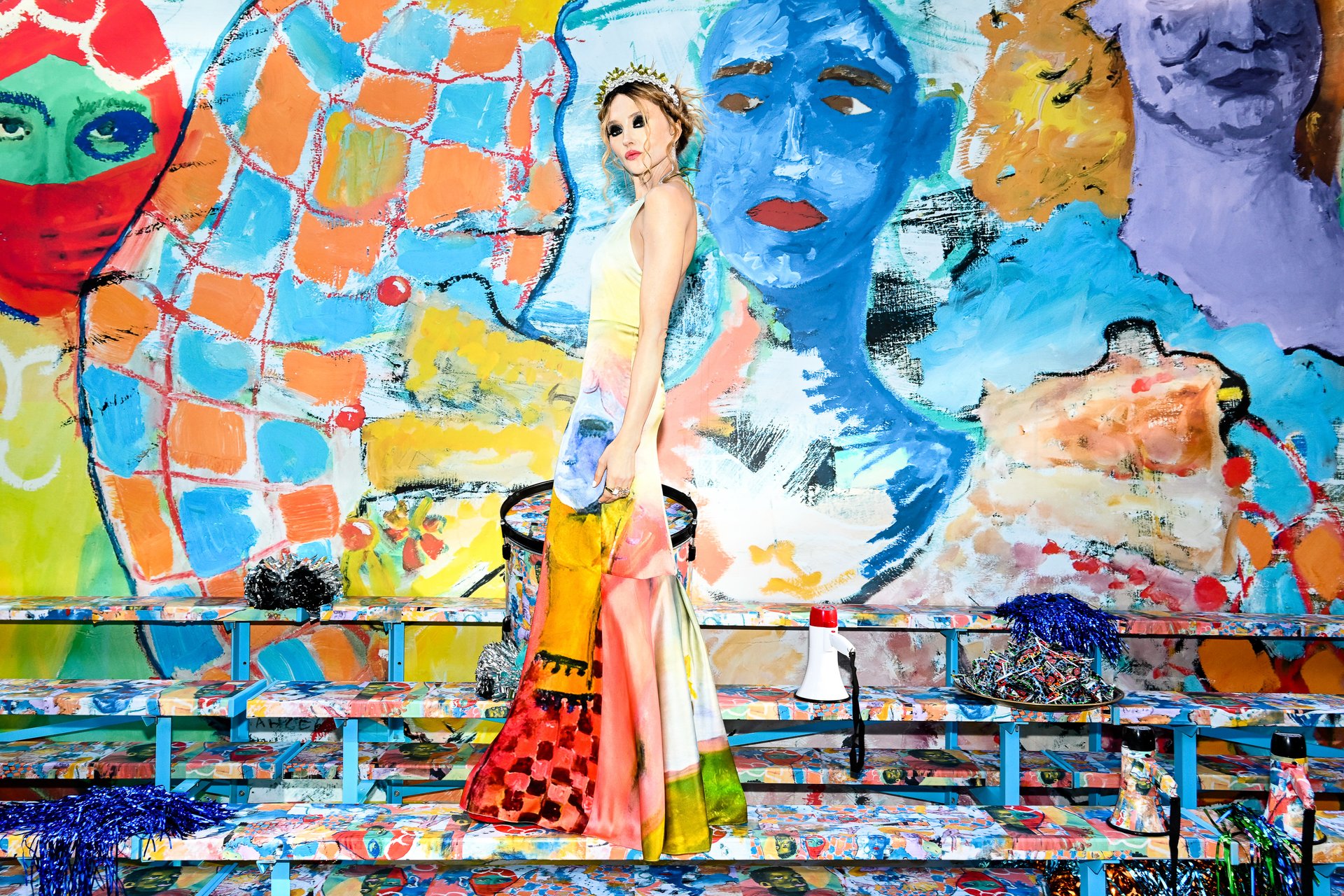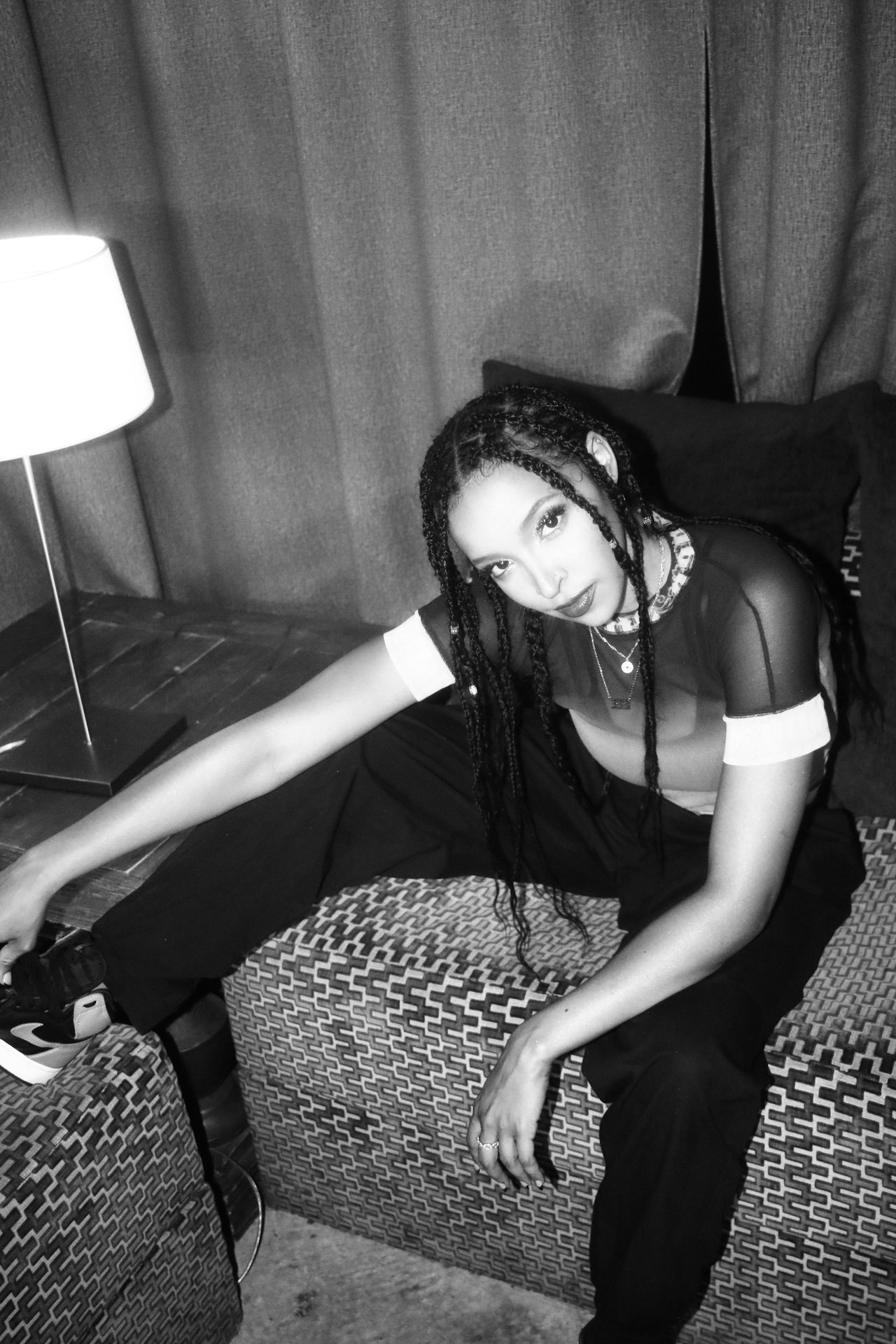How Fashion is an Avenue to Educate
June 17, 2022
Melquan Ganzy
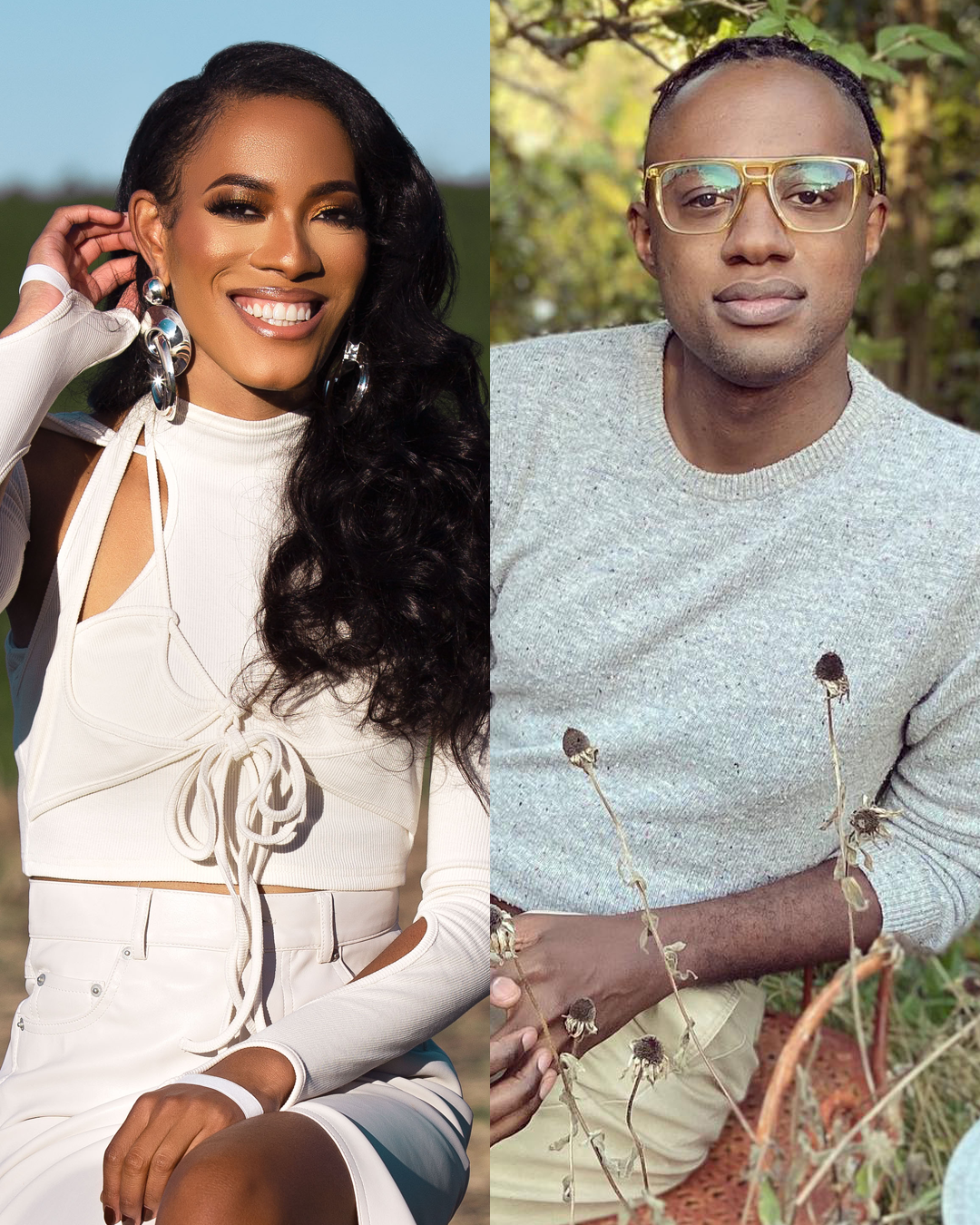

Fashion is more than just serving a look for an Instagram post or New York Fashion Week. Fashion is more than luxury brands and streetwear trends. Fashion is an avenue to educate and advocate for social awareness within our communities. Although we have mainly known fashion to be solely focused on outer appearances, there are undeniable internal reasons as to why many of us present our social identities and cultural narrative through dress.
The Founder and Creative Director of Fashioning the Self in Slavery and Freedom, Dr. Jonathan M. Square specializes in fashion, dress, and visual culture of the African Diaspora. He earned a Bachelor of Arts (B.A) from Cornell University, a Master of Arts (M.A). from The University of Texas at Austin, and a Doctor of Philosophy (PhD) in History from New York University (NYU).
Fashion Costume Historian Shelby Ivey Christie, also known as Bronze Bomb Shel, has stopped at nothing to enlighten the people of aesthetics and practices that have been disassociated from Black narratives in fashion. Christie earned a B.A. in Liberal Studies at North Carolina A&T in Greensboro, N.C. and is currently working on her M.A. in Costume Studies at NYU.
Dr. Square and Christie have truly elevated the use of fashion by conducting critical research, developing alternative perspectives, and embracing their social identities and everyday experiences.
We spoke to each about fashion, social issues, identities, and more.
At times, people do not always see fashion as a platform with the power to eradicate political structures but what has influenced your fashion practices especially when speaking to social issues and identities?
“You know part of my motivation for being a fashion scholar is to make a case for the importance of fashion. A lot of people look down on fashion because it is seen as being frivolous or unimportant. It is important to think of fashion as a structure.
In my work I show the importance of using fashion as a lens. In particular for me, I use the lens in thinking about the history of enslavement and experiences of enslaved people. Another scholar may view a different lens that looks into demography or abolitionist laws, my lens is fashion and material culture. I make the case for the importance of using fashion as a lens to look at larger social structures.” – Dr. Jonathan Square
“I am naturally a fashion doll. I have always been engaged and involved in fashion since a very young age; it has always been my creative medium. Fashion has always been a huge part of my identity in how I not only express myself but also in the work I do. Fashion is not separate from my being, it is a big part of who I am.“ – Shelby Ivey Christie
As a Fashion Scholar and Historian, how have you developed a deeper understanding of fashion and how it connects to cultural narratives?
“Honestly, as a Fashion Historian, my entree, my interest in fashion is sort of freedom of expression even as a child. I almost do not like the word fashion because of the negative stereotypes attached to it. Sometimes I just say creativity. Fashion is a form of art, a form of wearable art.
I started to realize the importance of fashion for understanding social, political, and economical history in graduate school. It happened organically, it was not my colleagues or superiors of my program. It was my friends who were stylists, curators, and artists who would ask ‘Johnathan, why are you doing this project on the genesis of mass incarceration? You should marry your interest in art and fashion with your interest in African American history and expressive culture.’” – Dr. Jonathan Square
“A lot of my understanding does not come from school. In a border landscape, fashion has been historically delivered to us through a white lens. So, I wanted to change that in fashion. I started my tweets, my threads, and sharing my content in research. I wanted to amplify Blackness in these stories that haven’t naturally included me. I did research on my own time prior to starting the threads on social and before the content became a big thing.
As a Black woman in fashion, unfortunately in a lot of the rooms and career paths that I have been in, I might have been the only Black woman, there may have been one other Black woman. So a lot of times it was up to me to make sure I am seeing myself in these stories and making sure I make myself feel seen in fashion. Race, class, culture, and societal interceptions have always been an interest to me.” – Shelby Ivey Christie
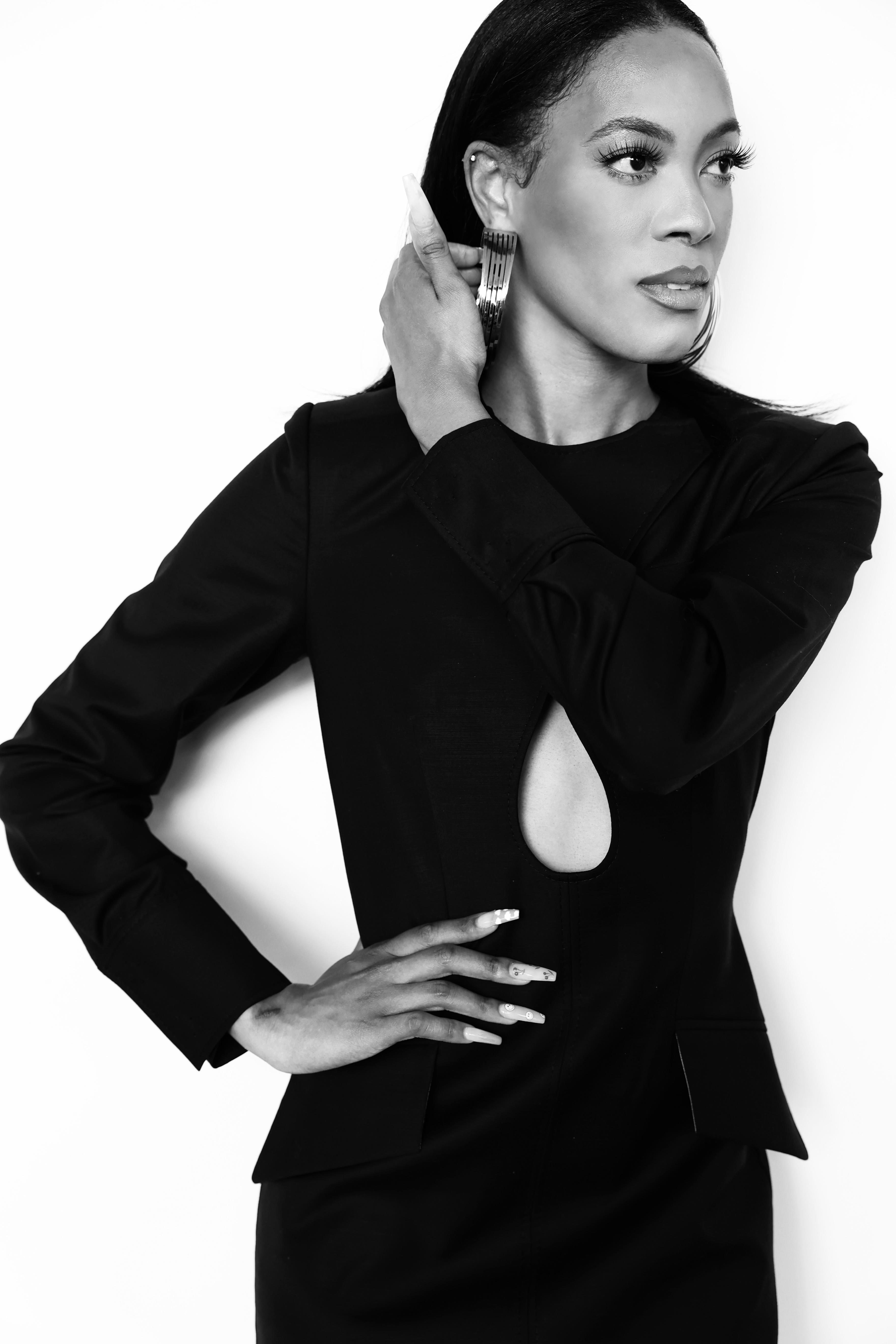
So often, we believe that we can reconstruct systematic issues when in actuality these systems must come to an end or crash to develop new systems that exemplify equity. If the fashion system crashed today, what ideas would the new system implement at the beginning of its foundation?
“I love speculating about alternative futures, we have to do that. One of the unhealthy features of fashion is people and people’s labor being undervalued or not valued at all. If I were to construct a new system, it would foreground the value of human beings and human labor opposed to the objects; objects are ancillary to human experience.” – Dr. Jonathan Square
“It is not for Black creatives or people to resolve issues; we do not need to rebuild systems that may not still be beneficial to us most immediately. We are not the ones who implemented challenges into the system, so we should not be the ones fixing the systems. On Twitter, many people have been vocal, we have made suggestions, we have partnered with brands, and they have consulted with us. People have all the information they need – it’s about implementation.
For me, it would look like true camaraderie and financial support across Black creatives, hiring outside of Parsons, NYU, and FIT, choosing individuals from HBCUs below the Mason Dixon line. It would look like having Black leadership in place that has an understanding of the creative, tactile, and business side of fashion.” – Shelby Ivey Christie
There are many conversations that are happening in fashion. What conservation are you encouraged to set on fire? Or what conversations are you encouraged to add fuel to?
“I can see small changes happening in the fashion industry in terms of diversity in all senses of the word, racial diversity, body diversity, age diversity, and the representation of the LGBTQIA community. I really want to see the knob turned up on those conversations, I want them taking to its most radical ends.
I want to set fire to the conversations around the fixations on youth, whiteness, and petiteness. There are small shifts here and there, the major issues of the institution are so hulking that the radical change that needs to happen is kind of impossible.” – Dr. Jonathan Square
“I am excited about building pipelines to fashion careers and Southern HBCUs. That is most important to me as a graduate of the largest HBCU, as a graduate of a Southern HBCU, and as a graduate of a school that does not have a fashion design program. That’s of the utmost importance to me. Many HBCUs in general in the South are either agricultural or technical schools focused in STEM or School of Business.
Those in the creative field do not really get many opportunities or even have qualified companies come to their career fairs because they are far from metropolitan areas. Many people do not have the resources to travel to NYC every summer for internships, I was fortunate to have a family originally from New York, so I went to NY every summer to intern. Twitter content and threads are one thing but doing the work is a whole different thing. I am making sure I get into positions where I can actually be an impact for change.” – Shelby Ivey Christie
One conversation I believe our voices are missing from is the streetwear and luxury fashion crossover especially as streetwear is heavily influenced by Black culture. How do you define streetwear and what does streetwear look like to you?
“Willi Smith is often credited for being a pioneer in streetwear. His definition is different from Bape and Supreme, his streetwear brand was built on demographic ethos – anyone could participate in fashion. His clothes were not cheap but they were not out of ramble for the mobility of a working person. His fashionable brand is what you wore on the streets.
The term has evolved. Some people would say that the term has been ghetto-ized to the point when others think about streetwear they associate it with improvised Black communities, which is not fair due to its rich history.” – Dr. Jonathan Square
“I think streetwear in its origins is an output of urbanwear which are fashion labels founded by designers who were Black in the 1980s and 1990s. The border luxury landscape ignored Black consumers and were interested in catering to Black consumers, so leaders, designers, and figures in our community said okay we will take these clothes and remix it or we can create clothing that fits into this Black audience and consumer. It had a lot to do with the alignment of Hip-Hop, which created so many millionaires in the 90s. Hip-hop was not something you just did at a basement or park party, we had moguls, we had Roca Fella, we had Bad Boy.
There was an appetite and an introduction to luxury brands through Hip-Hop and that created a need to cater to Black consumers’ clothing choices and how we preferred them to fit. Sean John won CFDA’s menswear award in 2001; at its core urban culture is the shoulders streetwear stands on. Streetwear is getting further away from Blackness, which we have seen historically. People come into the culture, dabble in it then take it to turn it into something that is really not culturally significant. They may have the look, the visual, or the optics of streetwear but it doesn’t have streetwear curated at its core. In my opinion, we have gotten away from the spirit of streetwear and the Black cultural importance of streetwear.” – Shelby Ivey Christie
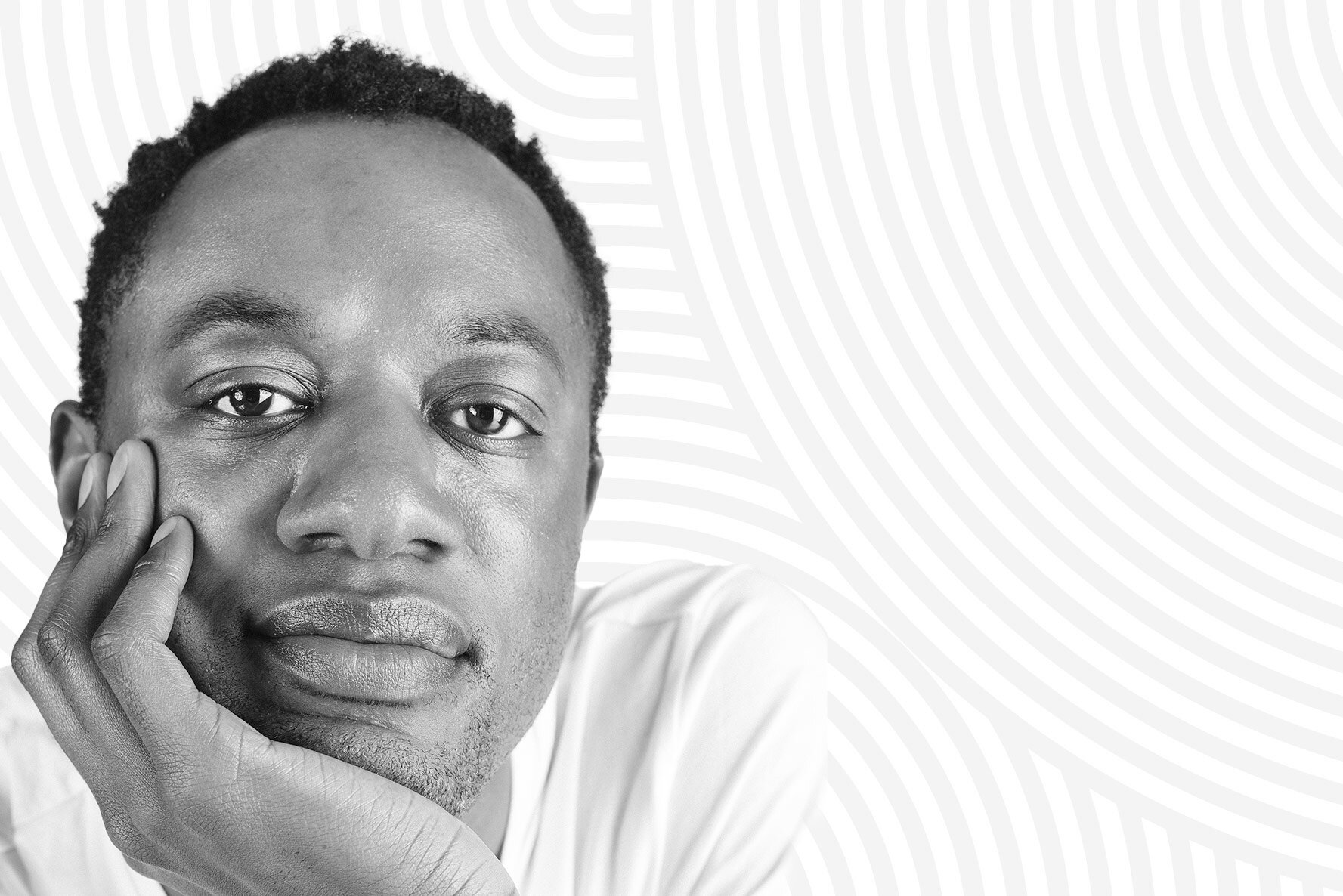
Without a doubt fashion is for us and by us, too. We have to speak up about our contributions to the furtherance of fashion. How can we amplify our voices when speaking to streetwear?
“Understanding the power of our own voice. And it took me a while to learn that lesson. I am very much like an institution person. I’ve spent most of my adult life attached to institutions and I used that to legitimize what I was saying.
We need to learn the power of our own voice and thankfully we have the technology to do that now. People didn’t have platforms like Instagram, Facebook, Twitter, and Tik Tok 20 years ago. Now we can create our own institutions and build our own audiences without relying on institutions that were not inclusive at their beginnings as well as institutions that play lip service to our history and culture.” – Dr. Jonathan Square
“If one of us gets into a position, let’s hire those Black creatives who are upcoming or who have worked with us. Let’s recommend Black creatives to roles we know they’ll be great for. Let’s implement some kind of nepotism or pipeline or feeder just on your own day to day.
If you can recommend someone for a job, do it. If you’re in the room then say their names. Even show someone at the company their profile. These are things we can do individually in our day to day lives, the rest of it is systemic. And it’s not something we can always impact on a day-to-day basis.” – Shelby Ivey Christie
Our voices are even needed in education, so representation and visibility truly does matter. If you’re telling a story you have to tell the true story and the whole story. How important is it for many people who look like you to be in spaces to study and work in fashion?
“It’s a crucial first step. No other conversations need to be had until you implement diversity – more diverse actors at play. You can’t have any other conversations, that have to be the first step. That said, there’s the adage ‘all skin folk ain’t kinfolk’ so I don’t think it stops there. You don’t solve all the problems because all the problems are actually structural – it’s way the institution functions. Someone might be black in terms of how they present to the world and how they identify but they may move about the institution in a white way, it’s structural. At the end of the day, people of color have to get paid – bills are due.” – Dr. Jonathan Square
What ways will we see you continue to show up for fashion, history, and race?
“Regardless of what field I am in, and this is my advice to anyone, be authentically you. It wasn’t until I was aesthetically myself that my career took off. When I stopped trying to be the austere Black scholar or be xyz or follow xyz conventions, I listened to myself and did what was more organic to me and that’s when things took off for me. I just want to continue to be true to myself.” – Dr. Jonathan Square
